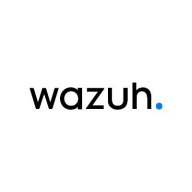

Fidelis Elevate and Wazuh are competing cybersecurity solutions. Wazuh holds the upper hand due to its robust features and perceived value.
Features: Fidelis Elevate is known for its advanced threat detection and response capabilities, comprehensive network visibility, and automated threat response. Meanwhile, Wazuh provides flexibility with its open-source nature, allowing for seamless integration across platforms. It supports comprehensive log analysis and configuration assessment.
Room for Improvement: Fidelis Elevate could benefit from expanding beyond network-centric features and enhancing endpoint coverage. Improving integration options with other tools might also provide more flexibility. Wazuh may need to simplify deployment to reduce the need for technical expertise, enhance its support for more deployment environments, and increase the robustness of its community-driven support systems.
Ease of Deployment and Customer Service: Fidelis Elevate offers a streamlined deployment process and strong customer support to aid in smooth system integration. Wazuh, with its open-source nature, offers deployment flexibility but requires more technical expertise. Its community-driven customer service adds value for users familiar with such environments.
Pricing and ROI: Fidelis Elevate involves higher initial costs but provides value in threat management capabilities. Wazuh offers a cost-effective open-source model, yielding high ROI for organizations with technical know-how. Its low entry cost and flexible deployment make it attractive for resourceful teams.
I have seen value in security cost savings with Wazuh, as using proprietary EDR versions could save us substantial money.
They responded quickly, which was crucial as I was on a time constraint.
The documentation is good and provides clear instructions, though it's targeted at those with technical backgrounds.
We use the open-source version of Wazuh, which does not provide paid support.
It can accommodate thousands of endpoints on one instance, and multiple instances can run for different clients.
Currently, I don't see any limitations in terms of scalability as Wazuh can still connect many endpoints.
Scalability depends on the configuration and the infrastructure resources like compute and memory we allocate.
The stability of Wazuh is strong, with no issues stemming from the solution itself.
The indexer frequently times out, requiring system restarts.
The stability of Wazuh is largely dependent on maintenance.
Machine learning is needed along with understanding user behavior and behavioral patterns.
I think Wazuh should improve by introducing AI functionalities, as it would be beneficial to see AI incorporated in the threat hunting and detection functionalities.
The integration modules are insufficiently developed, necessitating the creation of custom integration solutions using tools like Logstash and PubSub.
Wazuh is completely free of charge.
I would definitely recommend Wazuh, especially considering Fortinet's licensing model which is confusing and overpriced in my opinion.
Wazuh is free to use, but there are licensing fees for third parties.
The fact that it is open source means it is always being expanded, which is beneficial for customizing solutions for individual client requests.
With this open source tool, organizations can establish their own customized setup.
The system allows us to monitor endpoints effectively and collect security data that can be utilized across other platforms such as SOAR.
| Product | Market Share (%) |
|---|---|
| Wazuh | 10.2% |
| Fidelis Elevate | 0.9% |
| Other | 88.9% |


| Company Size | Count |
|---|---|
| Small Business | 6 |
| Large Enterprise | 2 |
| Company Size | Count |
|---|---|
| Small Business | 26 |
| Midsize Enterprise | 15 |
| Large Enterprise | 8 |
Fidelis Elevate integrates network visibility, data loss prevention, deception, and endpoint detection and response into one unified solution. Now your security team can focus on the most urgent threats and protect sensitive data rather than spending time validating and triaging thousands of alerts.
Wazuh offers comprehensive security features like MITRE ATT&CK correlation, log monitoring, and cloud-native infrastructure. It ensures compliance and provides intrusion detection with high scalability and open-source flexibility, ideal for businesses seeking robust SIEM capabilities.
Wazuh stands out in security information and event management by providing efficient log aggregation, vulnerability scanning, and event correlation against MITRE ATT&CK. Its capability to integrate seamlessly with environments, manage compliance, and monitor files makes it suitable for cloud-native infrastructures and financial sectors. Despite its technical support needing enhancement and opportunities for improving AI integration and threat intelligence, its open-source nature and cost-effectiveness make it appealing. Users can leverage custom dashboards powered by Elasticsearch for precise data analysis, even though there is a desire for a more user-friendly interface and better enterprise solution integration. Deployment may be complex, but its features contribute significantly to fortified security postures.
What are the essential features of Wazuh?Industries like finance and cloud infrastructure heavily utilize Wazuh for its security strengths. By monitoring endpoints and ensuring compliance with frameworks, companies can improve security posture and swiftly detect anomalies. The platform's focus on event correlation and alerts for security incidents is particularly beneficial.
We monitor all Extended Detection and Response (XDR) reviews to prevent fraudulent reviews and keep review quality high. We do not post reviews by company employees or direct competitors. We validate each review for authenticity via cross-reference with LinkedIn, and personal follow-up with the reviewer when necessary.